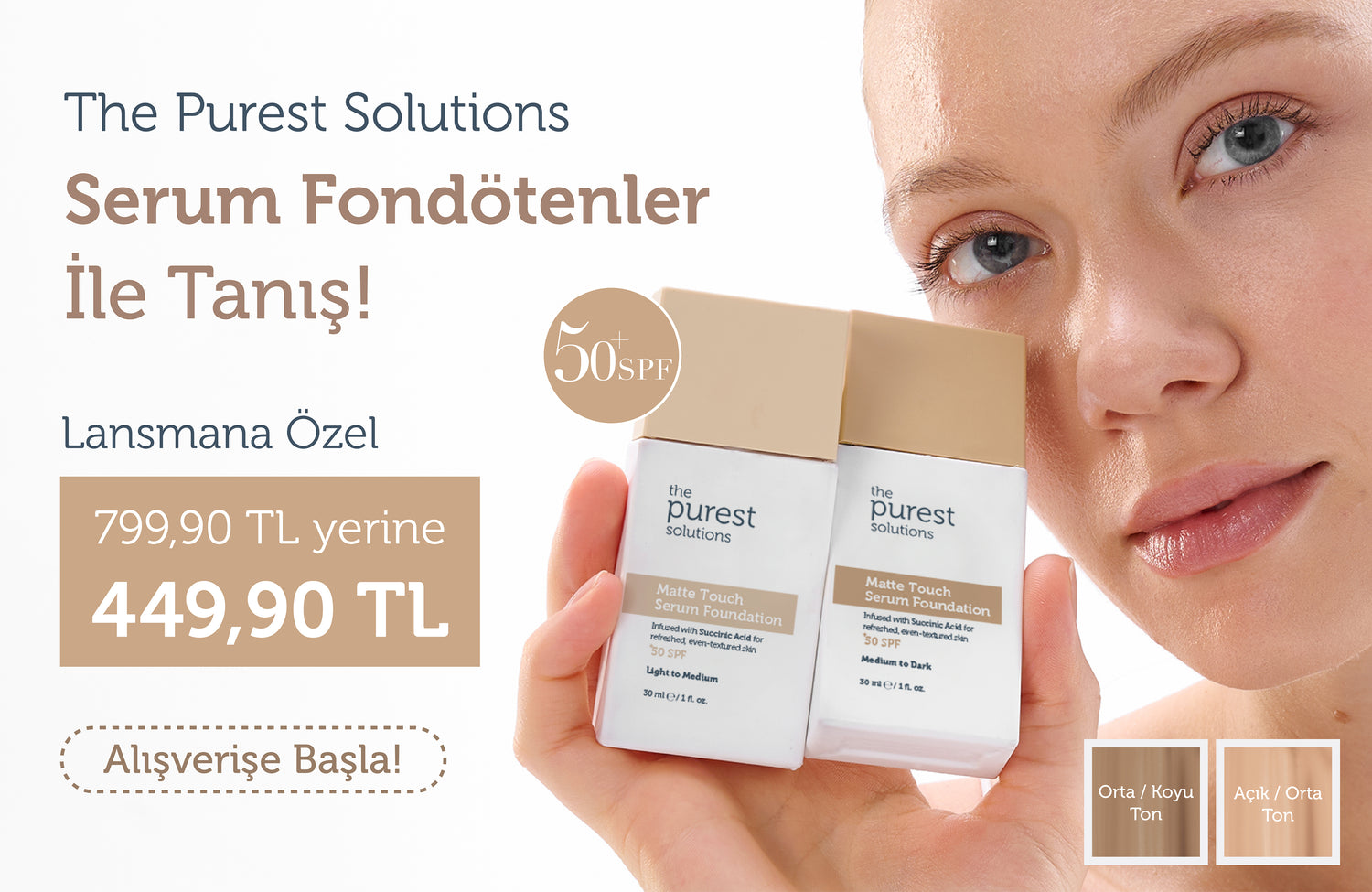In skin care, serums are an important product group that should be chosen according to the specific needs of your skin. Since each skin type has different requirements, choosing the right serum is important for skin health. Serums suitable for dry, oily, combination, sensitive or mature skin contain different active ingredients. Therefore, understanding your skin type and choosing a serum according to your needs is one of the cornerstones of your skin care routine. Choosing a good serum can provide a wide range of benefits, from moisturizing your skin to reducing the signs of aging. In this article, we will touch on tips on choosing the most suitable serum for different skin types, so that everyone can find the one that suits their skin needs.
What are the Benefits of Skin Serums?
Skin serums are intensive and lightweight skin care products designed to be an essential part of your skin care routine. They are often used as the serum step of your skin care routine. When used regularly, skin serums can help your skin look healthier, brighter and more youthful. Skin serums have a variety of functions and can provide a number of benefits to your skin's health:
Moisturizing: Skin serums can prevent dryness and water loss by providing deep moisture to the skin. Serums containing moisture-retaining ingredients such as hyaluronic acid can help maintain the skin's moisture balance.
Anti-Aging Effects: Some skin serums may contain anti-aging ingredients that can help reduce fine lines and wrinkles on the skin. Ingredients like retinol, vitamin C, peptides, and antioxidants can improve skin elasticity, stimulate collagen production, and reduce signs of aging.
Skin Tone Correction: Serums can help even out skin tone and reduce blemishes. Ingredients like vitamin C and niacinamide in particular can lighten pigmentation issues and make skin tone more even.
Cleanse and Tighten Pores: Some serums can help clear out pores and reduce their visible size. Serums that contain oil-absorbing ingredients like salicylic acid can clear away dirt and oil that clogs pores and leave skin smoother.
Anti-inflammatory and Soothing Effects: Serums formulated for sensitive skin can soothe the skin and reduce irritation. Serums containing soothing and anti-inflammatory ingredients such as aloe vera, green tea extract, and panthenol can relieve redness and discomfort in sensitive skin.
At What Stage of Your Skin Care Routine Are Skin Serums Used?
Skin serums are usually applied to clean skin after cleansing and toning the skin in the daily care routine. Therefore, the serum step is usually the third step in the general skin care routine. After they are absorbed into the skin, they can carry their active ingredients deeper into the skin. After the cleansing step, you apply the serum you have chosen according to the needs of your skin. The use of the serum is determined according to the needs of the skin. Serum application can be done for purposes such as equalizing skin tone, moisturizing, applying anti-blemish or anti-aging care, or soothing sensitive skin. In this step, the skin type and needs of the skin should be determined first, and then the serum should be applied.
How to Apply Skin Serum?
Applying the serum correctly ensures that the active ingredients penetrate your skin most effectively. After thoroughly cleansing your skin with a gentle cleanser, you can apply a toner to restore the skin's pH balance and better absorb the serum. Then, while your skin is slightly damp or still slightly wet, place a few drops of the serum in your palms and apply to your skin, avoiding the eye area, using your fingertips. Gently massage the serum into your skin and wait a few minutes. Finally, you can apply your other skin care products, such as moisturizer and sunscreen. If you use the serum during the day, be sure to use sunscreen, as some serum ingredients can make your skin sensitive and more sensitive to the sun.
How to Choose Skin Serum According to Skin Type?
Serums play an important role in skin care to nourish, moisturize and maintain the youthful appearance of your skin. However, choosing the right serum is a critical step that you should determine according to your skin type and needs. Here are tips on choosing the most suitable serum for different skin types:
1. Serum Selection for Dry Skin:
Dry skin is prone to dehydration and flaking. Serums with strong moisturizing properties are ideal for this skin type. Serums that contain moisture-retaining ingredients like hyaluronic acid deeply hydrate and soften your skin. Serums that contain moisturizing oils like glycerin or squalane can also be effective for dry skin.
2. Serum Selection for Oily Skin:
Oily skin is often characterized by shine and enlarged pores. For this skin type, a lightweight, oil-free serum that does not clog pores should be preferred. Serums that contain oil-absorbing ingredients like salicylic acid can mattify your skin and help balance oil production. Serums that contain anti-inflammatory ingredients like niacinamide can also be beneficial for oily skin.
3. Serum Selection for Combination Skin:
Combination skin is oily in the T-zone and dry or normal on the cheeks. For this skin type, serums with both moisturizing and oil-balancing properties should be preferred. Serums that contain moisturizing ingredients such as hyaluronic acid as well as oil-absorbing ingredients such as salicylic acid are ideal for combination skin.
4. Serum Selection for Sensitive Skin:
Sensitive skin is sensitive to external effects and is easily irritated. For this skin type, hypoallergenic and gentle serums that avoid irritating ingredients such as perfume and alcohol should be preferred. Serums containing soothing and anti-inflammatory ingredients such as aloe vera, green tea extract or panthenol are suitable for sensitive skin.
Serum Selection for Skin Showing Signs of Aging:
Mature skin requires special care to combat wrinkles, spots and sagging, which are signs of aging. For this skin type, serums with anti-aging properties should be preferred. Serums containing anti-aging ingredients such as retinol, vitamin C, peptide complexes or hyaluronic acid can help reduce wrinkles in mature skin and increase skin elasticity.







